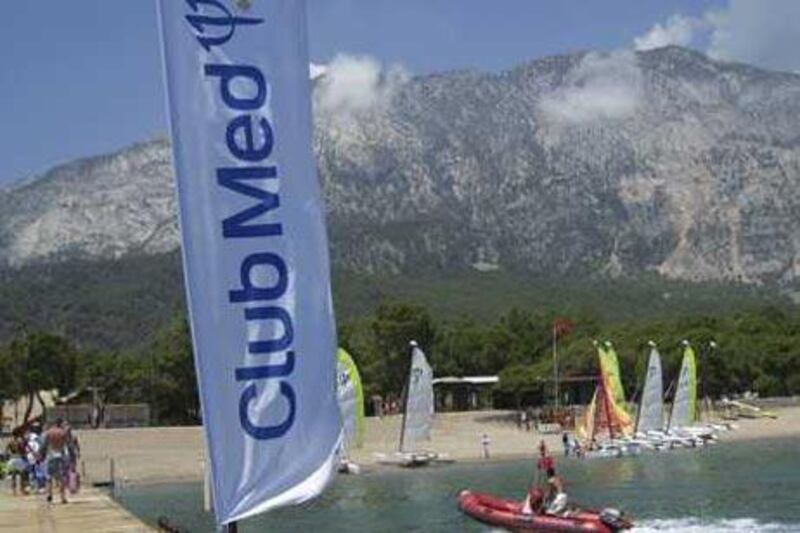Abu Dhabi has emerged as a top contender to host Club Med's first resort in the UAE, fending off competition from neighbouring Dubai. The capital is one of two emirates favoured by the French resort operator because of the availability of beachfront land, its environmental policies and a tourism strategy that emphasises culture and nature.
Ras al Khaimah is the other emirate in the running. Club Med, once known for its mass-market packages focused on the young, single holidaymaker, has rebranded itself as a company offering family-oriented, luxury all-inclusive stays. "At the moment we are starting discussions with groups in Abu Dhabi and we are assessing some potential sites," said Gregory Lanter, the vice president of global development for Club Med.
The company has previously turned down opportunities to bring its brand to Dubai, he said. "We have been offered some plots in Dubai," Mr Lanter said. "Four years ago, we were offered something on the Palm, but we considered that it was too artificial for us, even though it's a very nice product and attracts a lot of guests. It's not what we want for our brand and for our guests." Club Med signed an agreement last Monday with Oman's Muriya Tourism Development company to open a luxury resort in Salalah, on the southern coast of Oman.
The detailed design plans for the resort have already been completed and it is expected to open by the end of 2012. "The first really good opportunity we had [in the region] was the opportunity in Oman," Mr Lanter said. "Oman is probably the country that fits best the spirit of Club Med, in the sense that we are looking for cultural aspects and natural settings. "We're trying to avoid any artificial things. Our basis is people relationships - we like people of different cultures to be able to meet."
Club Med briefly operated a resort in Sharjah in the 1980s, which it took over from another operator, but this did not work out, he said. The company was founded in 1950 by the former Belgian water polo champion Gerard Blitz and the French businessman Gilbert Trigano. Club Med has 80 resorts and 15,000 employees in 40 countries, and it had 1.2 million customers last year, the company said. "Despite its challenges in the new financial market landscape, the Club Med brand potential is very strong," said Chiheb ben Mahmoud, the senior vice president at Jones Lang LaSalle Hotels Middle East and North Africa, who described it as "a leading brand in resort management worldwide".
"The brand reached its peak in the 1970s and 1980s, where it virtually reached the household brand status in France." Club Med, which for years focused on attracting a mass market audience, changed its strategy after it was hit hard by the world tourism crisis that followed the September 11 attacks, Mr Lanter said. It opted to focus on luxury, all-inclusive, family-oriented holidays instead. "That might be one of the reasons why being in the [Gulf] at one period was not really for Cub Med, but now that we are upscale, it is much more in keeping with the Middle East strategy."
The strategy paid off during the latest global downturn in tourism, Mr Lanter said. Although, Club Med had 10 per cent fewer guests last year - down from 1.36 million the previous year, resulting in a 9 per cent fall in revenue - Mr Lanter said the company's performance was relatively strong in light of global economic conditions. "We consider ourself as the best bargain in the upscale industry because we've got an all-inclusive formula and because we offer a lot for the price that people are paying."
@Email:rbundhun@thenational.ae






